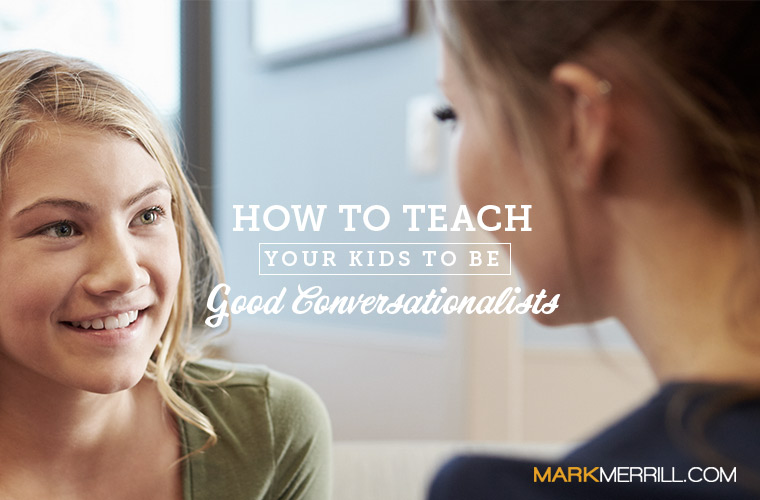A friend of mine was approached at church one morning by another adult with an unusual compliment: “I was just visiting with your 14-year-old and was so impressed with how she carried herself in the conversation!” Any parent is always delighted to get such a compliment. But this got him thinking, What are we doing that helped her, and can we help our other kids to be good conversationalists?
Occasionally, I’ll talk to a child or teen that is remarkably good at conversation and think “Wow, I know adults that aren’t as comfortable, confident, or mature as that kid was when talking to me!” Someday, your kids will be having job interviews, meeting future in-laws for the first time, talking to a college about admissions, or talking to someone in a business that they need help from.
Kids that are good conversationalists stand out for the best reasons. If you want your child to be at ease around adults and well prepared for leadership and service in their schools, jobs, and communities, being able to speak well and hold good conversations with others is critical.
Here are some key things to teach them while they are young:
You teach more by what you do than what you say.
Work on being a better conversationalist yourself, starting with your spouse, to show by example how to interact with others.
Make them aware of their body language.
People don’t just hear your words, they see you. Make and maintain eye contact, avoid fidgeting, keep your head up. Good posture—sitting up straight and not slouching— communicates confidence. Avoid crossing your arms.
Encourage them to be direct in saying what they mean.
They don’t need to be afraid to speak up, but when they do, they should learn to use words gently and concisely.
Help them avoid immature or trendy phrases and verbal tics.
When they use “like” or drop “um” excessively into conversation with you, point it out gently so they can learn to avoid it. If they have trouble, you can playfully talk to them in the same way. They will hear how odd it sounds coming from you.
Remind them to show appropriate respect.
Showing proper respect can start with using proper titles like “Mr.” or “Mrs.” or “Dr.” Also, a “Yes, sir” or a “Yes, ma’am” is always welcome even if some think saying that is a thing of the past.
Help them learn the art of asking good questions.
Good conversations come in part from good questions. A good question from your child shows they are interested in others and not self-absorbed. Good questions also demonstrate a desire to grow and learn as a person, too. Take turns asking each other interesting questions that get beyond “yes” or “no” and that teach you about each other.
Teach them how to be better listeners.
Again, this is important in marriage, too, and something better caught by your example than just taught. Good listening involves being focused, repeating and rephrasing what others are saying (and asking if you got it right), and acknowledging emotions. A good listener will also ask a lot of follow-up questions like, “Please tell me what happened next…” or “How did that make you feel?”
Putting some effort into these principles and practices when they are young will help them stand out right away. Here are 5 more ways to teach your kids to communicate better.
What are some other keys you’ve noticed in young people who relate well with others? Please share yours in the comments.



